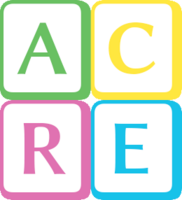Sharing personal information in HIFIS 4
In general, personal information that is entered into HIFIS is shared between all the agencies and programs that are serving the client.
This makes sense because one of the advantages of a shared data system is to reduce need for clients to provide information over and over. For example, if a client provides an intake site with her gender and date of birth, then the intake site refers her to a shelter, that information will still be true when the client arrives at the shelter. It saves time when a staff can locate an existing client file and use the information that’s already been provided by the client instead of asking them again.
Another reason this makes sense is it helps staff to be able to work together and update each other's work. For example, a street outreach worker meets a client who is sleeping under a bridge and records a Housing History entry that describes the client's living situation. A Housing History has a start date and and end date, so the street outreach worker leaves the end date blank, indicating that it's a current living situation. A few weeks later, the client enters shelter, and a different staff at a different Service Provider now notes that the client is no longer living under the bridge. They will need to edit the existing Housing History record and add an end date. They're able to edit the record even though it was entered by another user at another Service Provider because this Housing History record is not "owned" by any Service Provider.
Similarly, if a client is staying in a shelter and the shelter worker records their source of income as receiving social assistance, but later the client begins working with a Housing First caseworker who helps them apply for and receive disability support, it makes sense that the Housing First caseworker can edit the shelter worker's financial records.
Or, if one staff records a client's phone number and then the client loses their phone and gets a new one, it makes sense for any staff to be able to delete the old phone number and add a new record, even if they didn't make the original Contact Information record.
Sharing personal information also helps to reduce the amount of data entry required. Imagine that you have 100 total clients in your community, and 4 partner agencies. If you weren't sharing personal information, then each partner agency would have their own file for each client they're serving. Each agency might have 50 different files, which is a total of 200 files - on average, each client has 2 files, which means that staff, collectively, were doing twice as much data collection as was necessary.
However, just because we're sharing personal information between Service Providers doesn't mean that all information is shared all the time. Personal information is generally available to staff who need access to that information, and not shared with staff who don’t need it. For example, shelter workers might need access to clients’ food allergies, while staff working to prevent evictions don’t need that piece of information. What an individual staff member can access is dependent on their user rights.
Exceptions
In general, personal information is shared as described previously. However, there are a few exceptions to those rules:
- Assessments, such as the VI-SPDAT, SPDAT, and VAT, are all considered service-related information. As a result, they are not shared as freely between service providers. For this type of information, the total score is shared, but not the individual details of the assessment.
- Health Information including a client’s health issues and what medications they are taking can be made private. There are some settings that can be configured that give individual users the ability to decide whether a particular piece of health information is private or shared.
- Financial Information including a client’s income, expenses, assets, and debts can also be made private. The same settings can give individual users the ability to decide whether a particular piece of financial information is private or shared.
- Client Notes can also be made private. If settings permit, users can also choose whether a note is private or shared.
Sharing Service-Related Information in HIFIS 4
This week, the focus is on personal information, so we're not going to cover service-related information in too much detail, except to state that service-related information is "owned" by the Service Provider that created the record. That means things like case notes and incident reports are protected and are shared much less freely between Service Providers.
Service-related information is covered extensively in Term 2.
